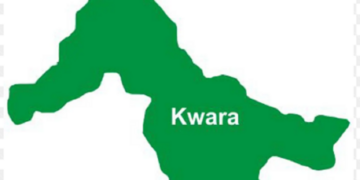Lagos State government through its Public Procurement Agency has launched the Lagos State Gender Responsive Procurement Policy aimed at tackling the marginalisation of women entrepreneurs in the state.
The director-general of the Lagos State Public Procurement Agency, Mr Fatai Idowu, who disclosed this yesterday at a media forum on the Lagos State Gender Responsive Procurement Policy, held in Alausa, Ikeja, explained that the policy is aimed at pioneering efforts to correct the long-standing imbalances that have marginalised women entrepreneurs from accessing public procurement opportunities.
According to him, the Gender Responsive Procurement Policy shouldn’t be viewed as just a document but as a pioneering effort to correct the long-standing imbalances which have marginalised women entrepreneurs from accessing public procurement opportunities.
“The Gender Responsive Procurement Policy we are discussing today is not just a document; it is a pioneering effort to correct the long-standing imbalances that have marginalised women entrepreneurs from accessing public procurement opportunities. For far too long, Women-Owned Businesses and Women-Led Cooperatives have faced significant challenges, ranging from limited access to finance and information to capacity constraints preventing them from participating fully in our state’s economic activities.
“This policy is our commitment to dismantling those barriers and creating a more equitable and inclusive procurement environment. Through capacity-building programmes, financial incentives, educational resources, and mentorship opportunities, we aim to enhance the abilities and market presence of women-owned businesses, ensuring they can compete effectively for public contracts,” he said.
Shedding further light on the overall objectives and benefits of the policy, Idowu stressed that equipping women with necessary skills and knowledge, and providing access to procurement opportunities for them, among other critical issues, were considered in drafting the policy.
“The objectives of this policy are clear: To provide greater access to procurement opportunities for women, to equip them with the necessary skills and knowledge, and to create a procurement environment that values and promotes gender equity. By doing so, we are not only empowering women but also contributing to the broader socio-economic progress of Lagos State.’’











